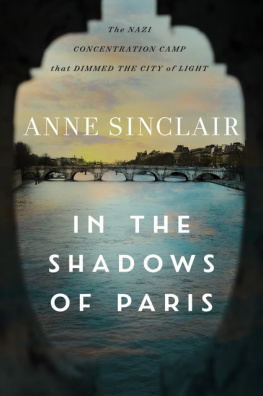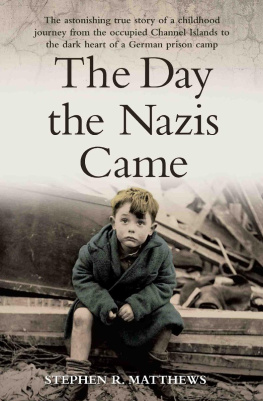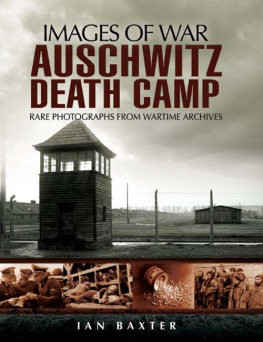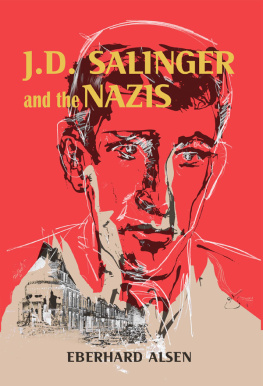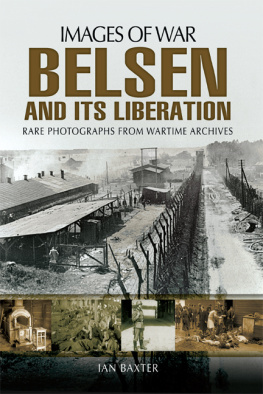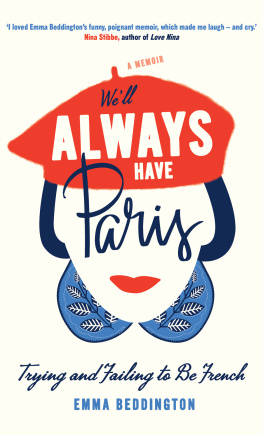Contents
Page-list
Guide

ALSO BY ANNE SINCLAIR
My Grandfathers Gallery:
A Family Memoir of Art and War

IN FRENCH
Une anne particulire
Deux ou trois choses que je sais deux
Camra subjective
21, rue La Botie
Chronique dune France blesse
Pass compos
IN THE
SHADOWS
OF PARIS
The Nazi Concentration Camp That
Dimmed the City of Light
ANNE SINCLAIR

Kenneth Kales, Editor
Sandra Smith, Translator
Bonnie Thompson, Associate Editor
Rima Weinberg, Assistent Editor
Jacket design by Laura Klynstra
Book design by Jennifer Houle
English translation copyright 2021 by Sandra Smith
La Rafle des notables by Anne Sinclair ditions Grasset & Fasquelle, 2020
Photographs of Frontstalag 122 2021 Mmorial de lInternement et de la Dportation, Compigne Photographs or documents in which Anne Sinclairs grandparents are central 2021 Family archives
Author portrait: Anne Sinclair JFPAGA
All rights reserved.
Library of Congress Cataloging-in-Publication Data
Names: Sinclair, Anne, author. | Smith, Sandra, 1949translator.
Title: In the shadows of Paris : the Nazi concentration camp that dimmed the city of light / Anne Sinclair ;
Sandra Smith, translator.
Other titles: La Rafle des notables. English | Nazi concentration camp that dimmed the city of light Description: First edition. | San Diego, California : Kales Press, [2021] | Originally published as La rafle des notables by ditions Grasset & Fasquelle, 2020. | Includes bibliographical references. | Summary: This story has haunted me since I was a child, begins Anne Sinclair in a personal journey to find answers about her own life and about her grandfathers, Lonce Schwartz. What her tribute reveals is part memoir, part historical documentation of a lesser-known chapter of the Holocaust: the Nazis mass arrest, in French the word for this is rafle, and there is no equivalent in English that captures the horror, on December 12, 1941, of prominent Jewsthe doctors, professors, artists, and others at the upper levels of French societywho were then imprisoned just fifty miles from Paris in the Compigne-Royallieu concentration camp. Those who did not perish there were taken by the infamous one-way trains to Auschwitz; except for the few to escape that fate. Lonce Schwartz was among themProvided by publisher.
Identifiers: LCCN 2021025764 (print) | LCCN 2021025765 (ebook) | ISBN 9781733395861 (print) | ISBN 9781733395878 (ebook)
Subjects: LCSH: Schwartz, Lonce. | Royallieu (Transit camp)Biography. | Concentration camp inmatesFranceCompigneBiography. | World War, 1939-1945Prisoners and prisons, French. | JewsFranceParisBiography. | Holocaust, Jewish (1939-1945) France. | Paris (France)Biography.
Classification: LCC D805.5.R69 S56 2021 (print) | LCC D805.5.R69 (ebook) | DDC 940.53/180944361dc23
LC record available at https://lccn.loc.gov/2021025764
LC ebook record available at https://lccn.loc.gov/2021025765
First Edition
ISBN-13: 978-1-7333958-6-1 print edition
ISBN-13: 978-1-7333958-7-8 ebook edition
kalespress.com
San Diego, California
For my sons, David and Elie,
and for my grandchildren
I have dreamed so vividly
of youI have so often
walked, so often spoken
so intensely loved your shadow
that nothing of you remains any longer
for meexcept
to be the shadow between the
shadows
the shadow who will come
again and again into your life
drenched in sunlight
ROBERT DESNOS
Inscription at the Mmorial des Martyrs
de la Dportation in Paris, honoring
the two hundred thousand souls
deported from France to
Nazi concentration camps
CONTENTS
T his story has haunted me since I was a child. And yet, while family history seems more interesting as people get older, my own story interested me only from a distance, at least at first, because for a long time, as a journalist, I found what was happening in the present more compelling than stories about the past. Nevertheless, this particular moment in time continued to obsess me. Was it because of the romantic aspect that I couldnt explain, the questions I didnt ask, the details I never pursued?
I was raised with the belief that children didnt ask questions of adults, and since we werent entrusted with any secrets, it seemed improper to pry. Besides, those secrets were a burden on us. Listening to stories told by the older members of my family, stories we couldnt care less about and that we couldnt fully understand, embarrassed us and encroached on our playtime. Despite all that, later on I could have tried to find out more. Why didnt I, and why didnt my father tell me anything, even though from a rather young age Id loved it when he read to me from his war journal, leaving out the pages that were inappropriate for an adolescent?
But when I finally did try, I quickly learned the basic facts of the epic journey of my maternal family, the Rosenbergs: their escape from France on June 16 and 17, 1940; the looting of everything theyd owned; and their arrival in America. Moreover, this story moved me to give an account of those events, one that merged art, the war, the great tragic history of that time, our familys story, and the ironies of fate, and resulted in the publication of My Grandfathers Gallery: A Family Memoir of Art and War.
In that book I also touched on research into the other story, the one about my paternal family, without going deeper at the time. But it kept calling out to my heart because, as is most often true, when the witnesses disappear, when there is no one left to confirm or tell the story, it becomes a matter of urgency, for the fragments of memory that reach us will disappear after us, unless they reach others as well.
When I began my more fervent research into Lonce Schwartz, my fathers father, I hoped to unearth some leads about his arrestwhich I thought had been made by French police sympathizing with the German occupiers and about his incarceration, which I was sure had been at Drancy. I also believed Id be able to clarify one of our familys legends: my grandfathers fantastical escape from a concentration camp, thanks to my grandmothers courage.
Disguised as a nurse, shed stolen a Red Cross ambulance, sneaked into the camp, and hid him in the back, narrowly preventing his deportation. I assumed I would find documents and letters, and that from these things I could also learn about their hiding place during the war years that followed. And then, I thought without a trace of modesty, I would feed on my research and its puzzles to produce a literary narrative on the coattails of Patrick Modianos Dora Bruder.
After several months of investigating, though, and resigned to finding virtually no documents in my familys possession, I realized that the rare discoveries Id made hardly confirmed what I had believed. In fact, quite to the contrary. The arrest had been made by the Nazi Wehrmacht, not by the men under the French collaborators Ren Bousquet and Jean Leguay. And he had been detained not at Drancy but at the transit and internment camp Frontstalag 122, at Royallieu-Compigne, which was lesser known. Also, there had been no romantic escape past the barbed wire; my grandmothers adventure to get my grandfather out of the Nazis claws was true, but it was from the bed of the Val-de-Grce hospital, not from the barracks of the camp.

